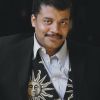20 Political Philosophy Books Changing How You See Power and Governance
Insights from Neil Degrasse Tyson, Steven Sinofsky, and Timothy Keller on Political Philosophy Books shaping minds and societies







What if understanding political philosophy could unlock how power truly works in the world? Political philosophy isn’t just an academic exercise — it’s the foundation of the systems that shape your daily life. From the pragmatism of Machiavelli to the revolutionary ideas of Marx, these books unravel the complex forces behind governance, authority, and justice.
Experts like Neil Degrasse Tyson, renowned astrophysicist, value classics such as Machiavelli's The Prince for their blunt insights into leadership and power. Meanwhile, Steven Sinofsky, a technology strategist, finds The Machiavellians crucial for understanding modern political dynamics. On a different note, Timothy Keller emphasizes Political Visions & Illusions for its deep Christian critique of ideology, showing how faith interacts with politics in profound ways.
While these expert-curated books provide proven frameworks, readers seeking content tailored to their specific background, interests, or goals might consider creating a personalized Political Philosophy book that builds on these insights for a more focused learning journey.
Recommended by Steven Sinofsky
Board Partner at a16z, Adviser at BoxHQ
“20/ The Machiavellians: Defenders of Freedom by James Burnham a must read book that I feel presents the most prescient description of where we are today and why and where we are heading. Really fascinating. Also, former Trotskyite.” (from X)
by James Burnham··You?
by James Burnham··You?
James Burnham's decades of political theory and realpolitik insight led him to craft this detailed exploration of the modern Machiavellians—figures like Mosca, Sorel, and Pareto—whose ideas quietly shape political freedom. You’ll gain a nuanced understanding of how their philosophies intersect with the preservation of liberty, moving beyond Machiavelli himself to grasp the intricate dynamics of political power. The book carefully dissects these thinkers’ contributions, challenging common perceptions and offering a lens to interpret contemporary political struggles. If you want to deepen your grasp of political science and philosophy through an analysis rooted in historical and theoretical rigor, this book serves that purpose well.
Recommended by Neil Degrasse Tyson
Astrophysicist
by Niccolò Machiavelli··You?
by Niccolò Machiavelli··You?
Niccolò Machiavelli's experience as a diplomat during the volatile Renaissance period drove him to write this incisive guide on power and governance. In The Prince, you explore the stark realities of political strategy, learning how rulers can maintain authority through pragmatism rather than idealism. Chapters delve into topics like the use of fear versus love, the role of fortune in politics, and the sometimes ruthless decisions leaders must make to secure their position. This book suits you if you're interested in the mechanics behind political power and the often uncomfortable truths that accompany leadership.
by TailoredRead AI·
This tailored book on political philosophy offers a unique learning experience by focusing on your specific interests and background. It explores foundational concepts such as justice, governance, and power dynamics, while examining key thinkers and schools of thought that have shaped political ideas across history. The content is carefully crafted to address your particular goals, whether you're seeking to understand classical theories or contemporary debates. By providing a personalized exploration, this book bridges complex expert knowledge with your own learning needs, making it easier to grasp challenging material and see its relevance to your worldview. This tailored approach ensures your journey through political philosophy is both engaging and meaningful.
Recommended by Timothy Keller
Founder of Redeemer Presbyterian Church
“I STILL think this is the best book out there to list the range of ideologies Christians unknowingly give themselves to--none of the biblical.” (from X)
by David T. Koyzis, Richard J. Mouw··You?
by David T. Koyzis, Richard J. Mouw··You?
What if everything you knew about political ideologies was wrong? David T. Koyzis, with decades as a political science professor and a global academic ministry, unpacks the religious roots shaping modern politics in this insightful survey. You’ll explore how ideologies like liberalism, nationalism, and socialism carry hidden assumptions about reality and the common good, revealing their idolatrous narratives through a Christian lens. The book challenges you to reconsider political commitments and offers alternative frameworks grounded in Christian engagement, making it especially relevant if you’re navigating faith in public life or seeking to understand complex political narratives.
Recommended by Shoshana Weissmann Sloth Committee Chair
Digital media manager and reform fellow
“@GeorgeWill @TheWeek Also, I ought to have threaded my favs from @GeorgeWill's new book, which I read on the treadmill - @GorsuchBook on elliptical and at my desk. "Wilson’s brazenness was breathtaking. He was draining Lincoln’s career of what makes it intelligible and noble"” (from X)
by George F. Will··You?
by George F. Will··You?
George F. Will's decades-long exploration of Western political tradition culminates in a detailed examination of how America's Founders crafted a distinct government framework rooted in natural rights and limited power. You gain insight into the tensions between the Founders' vision and modern political challenges, from unchecked executive agencies to shifts in family and education. Will's analysis, rich with historical context and contemporary critique, offers a nuanced understanding of conservatism's place in current American discourse. If you're seeking a deep dive into the philosophical underpinnings and practical implications of conservative thought, this book presents a rigorous, thoughtful perspective.
Recommended by Samantha Power
Former US Ambassador to UN, Harvard Professor
“Chomsky is a global phenomenon.”
by Noam Chomsky, Nathan Schneider··You?
by Noam Chomsky, Nathan Schneider··You?
What if everything you knew about political power was challenged? Noam Chomsky, a formidable figure in linguistics and political activism, offers a sharp critique of entrenched authority through the lens of anarchism in this collection of essays. You’ll encounter his optimistic vision of anarchism as a collective, egalitarian tradition rather than a fringe ideology, with chapters that trace its historical roots and contemporary relevance, notably illuminated by Nathan Schneider’s introduction linking these ideas to modern movements. This book is suited for anyone wrestling with the legitimacy of power structures and seeking to understand activism beyond individualism, though it may feel dense if you’re new to political theory.
by TailoredRead AI·
This tailored book explores political philosophy through a focused, step-by-step pathway designed to accelerate your grasp of key principles and their real-world application. It covers foundational ideas from classics to contemporary thought, examining concepts like governance, power, justice, and ideology with a clarity suited to your background. By aligning with your interests and goals, this personalized guide reveals how political theories shape societies, helping you connect abstract ideas to practical understanding. Whether new to political thought or seeking a sharper focus, this book tailors complex content into an engaging, manageable journey that matches your pace and priorities.
Recommended by Melina Abdullah
Professor of Pan-African Studies, Activist
“Brilliantly contends that meaningful Black activism is grounded in an underlying philosophy. Movements are driven by thought as well as action. Essential reading during the current Black activist renaissance”
by Michael E. Sawyer··You?
by Michael E. Sawyer··You?
After extensive study of African American literature and culture, Michael E. Sawyer brings Malcolm X's political thought into sharper focus, moving beyond mere biography to examine his philosophy as a dynamic system rooted in Black Radical Thought. You’ll explore how Sawyer connects Malcolm X's ideas on economic justice, anti-white supremacy, and Black internationalism with thinkers like W.E.B. Du Bois and Frantz Fanon, revealing the depth of his revolutionary vision. The book’s chapters on ontology and geographic space challenge you to rethink Malcolm X's activism as a lived, embodied philosophy. This is a thought-provoking read if you want to grasp the intellectual foundations of Black political movements.
Recommended by George Weigel
Author of The Fragility of Order
“Father Schall was a distinguished political philosopher whose immersion in the classics of the past gave him keen insights into the present and future. Students at Georgetown used to say that they 'majored in Schall'. America would do well to 'major in Schall' today.”
by Fr. James V. Schall S.J.··You?
by Fr. James V. Schall S.J.··You?
Fr. James V. Schall S.J., a longtime professor of political philosophy at Georgetown University, wrote this book to clarify the tensions between Christian thought and modern political ideas. You’ll explore how Christianity historically separated salvation from political structures, contrasting it with modernity’s attempt to politicize salvation within earthly governments. The book examines classical, medieval, and modern philosophical perspectives, emphasizing the dangers of conflating divine order with political power, as explored in chapters detailing the City of God versus Leviathan. If you’re grappling with the intersection of faith and politics or seeking a nuanced understanding of political philosophy through a Christian lens, this book offers thoughtful insights without resorting to oversimplifications.
Recommended by Michael McFaul
Stanford Professor and former US Ambassador
“Heard a fantastic presentation today by Francis Fukuyama on his new book, Identity. Buy this book !” (from X)
by Francis Fukuyama··You?
by Francis Fukuyama··You?
What if everything you knew about identity politics was wrong? Francis Fukuyama challenges conventional views by tracing how the demand for recognition fuels today’s political unrest, beyond mere economic grievances. You’ll find an analysis of how narrow identity claims—from race to religion—erode liberal democracy’s universal ideals, exemplified in chapters exploring populist nationalism and campus activism. This book suits anyone grappling with the fractures in modern states or seeking to understand the deeper forces behind political polarization. While it won’t offer simple solutions, it clarifies why identity shapes political behavior and why addressing it matters for democracy’s future.
Recommended by Kaushik Basu
Professor of Economics, Cornell University
“Reading an old classic & fascinating book written during the early years of the Weimar Republic by a fascist sympathizer & intellectual giant, Carl Schmitt, and translated into English & introduced by a holocaust survivor & outstanding scholar, George Schwab.” (from X)
by Carl Schmitt··You?
by Carl Schmitt··You?
What started as Carl Schmitt's intense engagement with the political upheaval of the Weimar Republic became a foundational text on sovereignty and political authority. In this concise work, you explore how Schmitt argues the core of sovereignty lies in the power to decide on exceptions when legal norms falter—an insight that challenges liberal legalism by emphasizing decision over rule-following. The book delves into the intertwining of political theology with modern legal concepts, revealing how secular political ideas often have theological roots. If you're seeking a sharpened understanding of political power, legal order, and the limits of liberal democracy, this book provides a focused, provocative perspective.
Recommended by Bob Dylan
American singer-songwriter
John Locke's Two Treatises of Government emerged from the intense political upheaval of 17th-century England, reflecting his deep engagement with ideas of natural rights and government legitimacy. You will explore Locke's argument for a government based on consent, the social contract, and the justification for revolution when rulers violate rights, with detailed focus on private property theory that shaped modern legal frameworks. This illustrated edition walks you through Locke's foundational concepts, especially in the Second Treatise, offering insight into the origins of liberal democracy. If you aim to understand the philosophical roots of limited government and individual rights, this book offers a direct window into those debates, though readers looking for modern political analysis might find it historical rather than prescriptive.
Recommended by Murtaza Mohammad Hussain
Political writer at The Intercept
“@Cumzilla420 @FukuyamaFrancis IMO that's his best book!” (from X)
by Francis Fukuyama··You?
by Francis Fukuyama··You?
After analyzing decades of political developments, Francis Fukuyama examines the deepening crisis within liberalism, tracing its origins from Europe’s religious and nationalist wars to its current challenges from both right and left-wing extremes. You’ll gain insights into how liberalism's foundational principles of equality and rule of law have been stretched and contested, illustrated through examples such as the expansion of civil rights and recent ideological divides. This book suits anyone seeking to understand the evolving tensions in modern democracy and the ideological battles reshaping civil society today. Fukuyama’s concise narrative confronts these discontents without idealizing liberalism, offering a clear-eyed perspective on its future.
Recommended by Jack Murphy
Lincoln Fellow, Political Commentator, Podcast Host
“Thomas West author of this amazing book, is confirmed for JML in December. I’m honored and excited!” (from X)
by Thomas G. West··You?
After analyzing the foundational texts of the American political tradition, Thomas G. West developed a nuanced interpretation emphasizing natural rights as the core lens through which the Founders conceived governance. His exploration challenges prevailing views that frame the Founders' thought as a blend of liberalism and republicanism, instead showing how republican policies on citizen character complement liberal economic principles. West delves into topics like natural law, social compact, and consent, tracing their policy implications with clarity. You’ll gain a deeper understanding of how common law and Protestantism influenced early American political structures, making this a thoughtful read if you're interested in the philosophical roots underpinning the U.S. Constitution and public policy.
by Steven M. Cahn··You?
by Steven M. Cahn··You?
Steven M. Cahn's extensive academic career at The City University of New York Graduate Center informs this third edition, which offers a sweeping historical journey through political philosophy. You engage with substantial or complete texts from classical thinkers like Plato and Aristotle to modern giants such as Rawls and Sandel, each prefaced by insightful essays that provide essential context. This book equips you with a broad understanding of political thought's evolution, from foundational concepts like justice and governance to contemporary debates on liberalism and democracy. If you seek a thorough grounding in the primary sources shaping political philosophy, this volume serves as a rigorous, text-centered guide.
by Karl Marx, Friedrich Engels, Samuel Moore··You?
by Karl Marx, Friedrich Engels, Samuel Moore··You?
What started as Karl Marx's deep critique of 19th-century capitalism became a foundational text that continues to provoke and inform political thought today. Marx and Engels lay out a rigorous analysis of class struggle, detailing how societal conflicts between oppressors and oppressed drive historical change. You’ll gain insight into the dynamics of capitalism’s contradictions and the envisioned transition to socialism and eventually communism, with clear articulation of economic and political forces at play. This edition includes the 1888 authorized English translation by Samuel Moore, preserving the original tone and intent, making it particularly valuable for anyone seeking a direct connection to Marx’s ideas. If you’re exploring the roots of socialist theory or the framework of class conflict, this manifesto offers a direct window into those debates.
by Leo and Joseph Cropsey Strauss··You?
by Leo and Joseph Cropsey Strauss··You?
Leo Strauss, a noted scholar in classical political theory, teamed with Joseph Cropsey to curate this extensive volume that maps the evolution of Western political philosophy from ancient Greece through the twentieth century. You’ll gain insight into key thinkers and their ideas, exploring how political concepts developed across eras and cultures, with essays that dive into individual philosophers’ contributions and contexts. The book suits those who want a deep, historically grounded understanding of political philosophy’s milestones rather than a surface overview. Chapters cover major figures and movements, offering a foundation for anyone engaged with political theory, history, or philosophy itself.
by Karl R. Popper, Alan Ryan, E. H. Gombrich··You?
by Karl R. Popper, Alan Ryan, E. H. Gombrich··You?
Karl Popper's decades of philosophical inquiry led him to write this rigorous critique of totalitarianism, blending his expertise in the philosophy of science with political analysis. You’ll uncover how Popper connects authoritarian regimes to philosophical traditions rooted in Plato, Marx, and Hegel, applying a scientific spirit of critical inquiry to political thought. The book offers detailed examinations of the intellectual foundations that threaten liberal democracy, including chapters that dissect historicism and dogmatic ideologies. If you seek to understand the philosophical arguments behind open societies and the dangers of closed ideologies, this book sharpens your perspective with historical and logical depth, though it demands patient and engaged reading.
by Plato··You?
by Plato··You?
Plato’s decades of philosophical inquiry culminate in this edition of The Republic, where he wrestles with justice and the ideal society through Socratic dialogue. You’ll explore foundational concepts like the tripartite soul and philosopher-kings, gaining insight into political structures and ethical governance. The book challenges you to question assumptions about power, truth, and human nature, with chapters dedicated to education, morality, and the role of art in society. If you’re intrigued by the roots of Western political thought and want to wrestle with questions still debated today, this work offers a rigorous intellectual journey but demands patient, reflective reading.
by Roger Scruton··You?
by Roger Scruton··You?
What started as Roger Scruton's deep engagement with aesthetics and culture became a robust defense of Western civilization through a conservative lens. In this book, he challenges Darwinian interpretations of human nature, particularly critiquing figures like Richard Dawkins for reducing human emotion to mere reproductive strategies. You’ll explore how such views threaten the foundations of freedom and moral responsibility, with Scruton making a case for renewed confidence in cultural traditions. Chapters dissect the interplay between biology, morality, and societal values, making it a thoughtful read for anyone grappling with modern critiques of human nature and social order.
Recommended by Matthew D'ancona
Editor and Partner at Tortoise
“@politybooks @tortoise @CasMudde It's a great book - congratulations to @CasMudde” (from X)
by Cas Mudde·You?
by Cas Mudde·You?
Cas Mudde, a recognized expert on political extremism, developed this book to clarify the resurgence of far-right politics that have moved from the margins to the mainstream in democracies worldwide. You’ll gain a detailed understanding of the far right’s history, ideology, organizational structures, and the social and political factors fueling its rise, with specific chapters analyzing its impact in Brazil, India, and the U.S. This book benefits anyone looking to grasp the complex dynamics of modern political extremism and those engaged in politics, policy, or social activism seeking to understand and respond to these movements.
by Niccolò Machiavelli, General Press··You?
by Niccolò Machiavelli, General Press··You?
When Niccolò Machiavelli penned this work in the 16th century, he drew on his experience as a Florentine statesman navigating the volatile politics of Renaissance Italy. You’ll encounter a candid examination of power dynamics, leadership tactics, and statecraft that challenges idealistic views of governance. The book dives into how rulers maintain authority through pragmatism rather than morality, illustrated in chapters discussing the use of cruelty, deception, and fortune. If you’re interested in political strategy, leadership psychology, or the roots of modern political thought, this treatise offers insights that remain relevant despite its age.
Get Your Personal Political Philosophy Guide in 10 Minutes ✨
Stop wading through generic advice—get tailored strategies that match your interests and goals.
Trusted by Political Philosophy enthusiasts and scholars worldwide
Conclusion
These 20 books collectively reveal political philosophy’s vast landscape — from foundational texts like Two Treatises of Government to critical analyses of identity, power, and extremism. If you’re grappling with understanding authority and governance, start with classics like The Prince and The Republic to ground your knowledge in enduring ideas.
For those eager to explore how political philosophy intersects with modern challenges, combining Identity with The Far Right Today offers a sharp lens on today’s political divides. Meanwhile, readers drawn to religious and cultural critiques will find Political Visions & Illusions and The Politics of Heaven and Hell highly illuminating.
Alternatively, you can create a personalized Political Philosophy book to bridge the gap between general principles and your specific situation. These books can help you accelerate your learning journey and deepen your understanding of political ideas shaping the world.
Frequently Asked Questions
I'm overwhelmed by choice – which book should I start with?
Start with The Prince | Niccolò Machiavelli if you want a direct and pragmatic view of political power. It’s foundational and widely recommended, including by Neil Degrasse Tyson. From there, you can explore more specialized topics based on your interests.
Are these books too advanced for someone new to Political Philosophy?
Not at all. While some books like History of Political Philosophy are more academic, others such as The Prince or The Communist Manifesto are accessible entry points that introduce key ideas clearly.
What’s the best order to read these books?
Begin with classics that establish core concepts like The Republic and Two Treatises of Government. Next, move to critiques and contemporary analyses like Identity and The Far Right Today to understand modern political challenges.
Do these books assume I already have experience in Political Philosophy?
Many are written to be approachable for curious readers, though some, like Political Theology, delve into complex ideas. The collection balances foundational texts with advanced critiques, allowing you to choose your level.
Are there any books here that contradict each other?
Yes, political philosophy thrives on debate. For example, The Communist Manifesto contrasts sharply with The Conservative Sensibility. These contradictions offer a richer understanding by exposing you to multiple perspectives.
Can I get a Political Philosophy book tailored to my specific interests?
Yes! While these expert books provide valuable insights, personalizing your learning with a tailored Political Philosophy book can focus on your goals and background. Consider creating your personalized guide to bridge expert theory and your unique needs.
📚 Love this book list?
Help fellow book lovers discover great books, share this curated list with others!
Related Articles You May Like
Explore more curated book recommendations



















